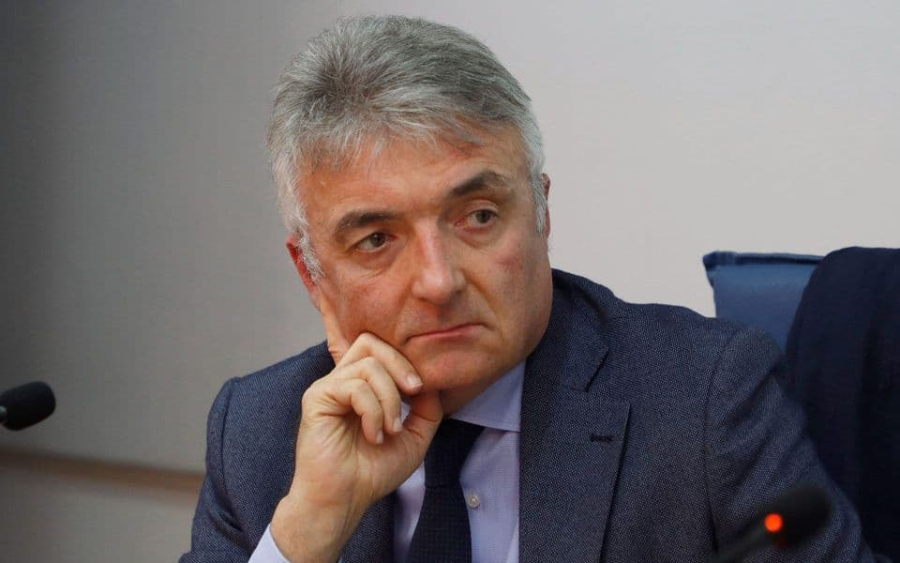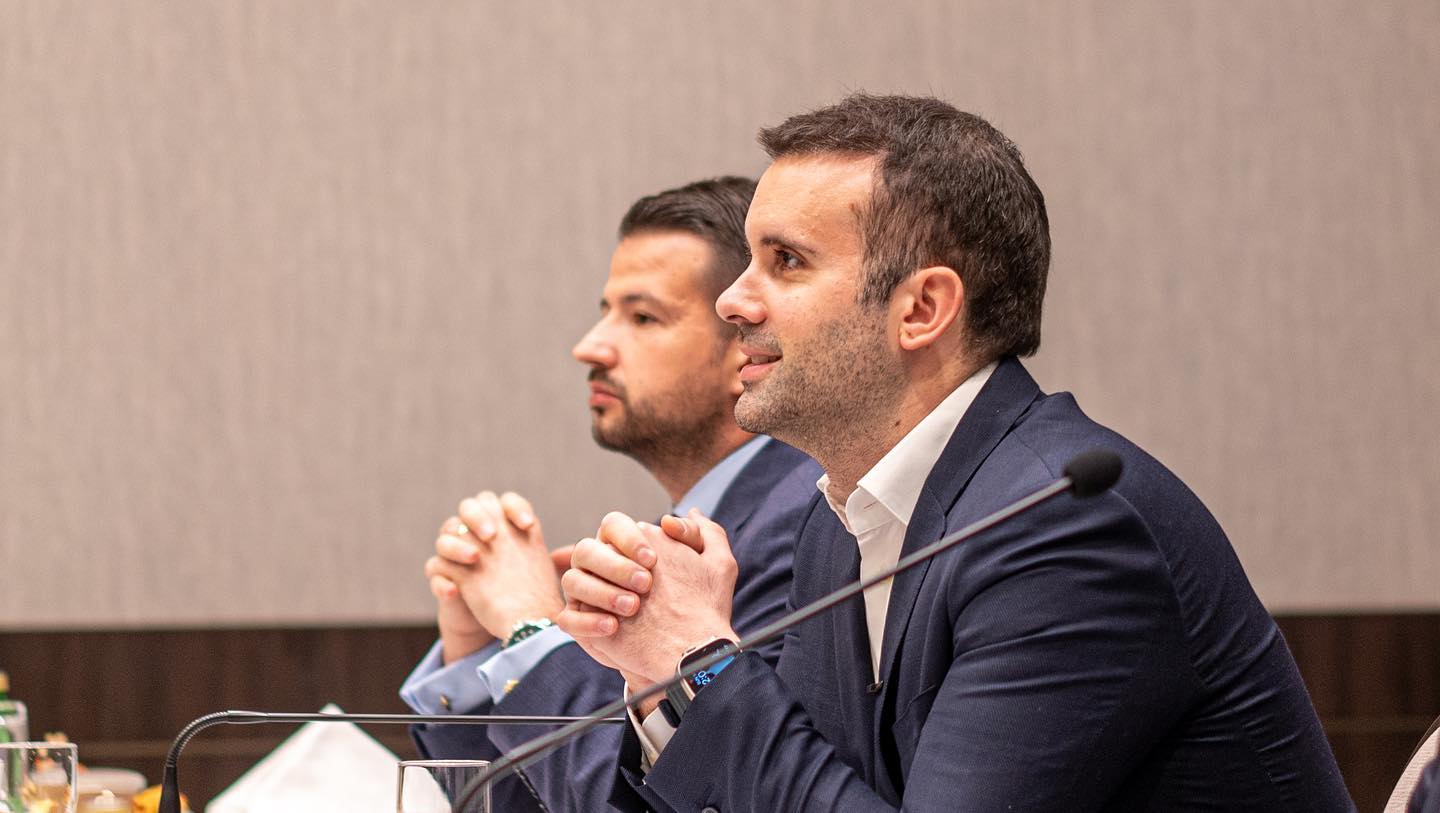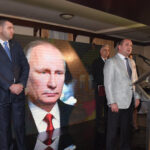What many analysts and political commentators had been announcing for months happened: the President of Montenegro and the Vice-President of the “Europe Now!” Movement. (PES), Jakov Milatović, resigned from all positions in that party and resigned from its membership.
The “drama” on the occasion of that act was short-lived and lasted less than a week – enough so that many members of the PES, obediently/interestedly following Milatović, stepped out from the party committees in Podgorica and Danilovgrad.
Their announcements were answered from the PES headquarters – in which Prime Minister Spajić retained the majority – with orchestrated letters and announcements of support from municipal committees, according to a scenario that has become the “modus operandi” in parties that have faced conflicts and splits of this kind.
(In addition to Milatović’s resignation, the current justice minister Andrej Milović was excluded from PES, but his position in the government is preserved for the time being, which, among other things, indicates a chaotic situation in since recently largest single party within the ruling parliamentary majority. But that situation requires a special analysis, because its branches reach the top of the security service and the Police Directorate, with elements of the influence of foreign factors and their malignant influences …)
In the context of possible political scenarios and the development of the situation, Milatović’s resignation raises more questions than it offers answers.
First, speculation that Milatović will form his own party will probably come true. However, a more detailed look at the political constellation in Montenegro would show that the room for maneuver for such a complex operation is drastically narrowed. The announcement that parts of the former SNP (Socialist People’s Party), led by Aleksandar Damjanović, former finance minister in Dritan Abazović’s government, will create a new party will surely reduce that “window of opportunity” even more. Damjanović promptly declared that his initiative had nothing to do with Milatović’s new status as president without a party. Who remains on the political scene to be able to approach Milatović? The list is very short and includes only marginal political structures and personalities without weight in Montenegrin politics.
Second, the big question is what Milatović himself can offer potential allies and followers. His political inexperience and modest and limited knowledge are difficult to hide. The position of the president of the state – which, in Montenegro, if you are not a person of the caliber of Milo Đukanović and the long-term head of the most powerful party, as Đukanović was for almost thirty years, means mainly ceremonial and representative powers, along with certain logical and usual powers for the head of state in the field of defense and diplomacy – does not bring much influence. Because of this, now Milatović is even more limited, i.e. reduced to his cabinet. His frequent attempts to interfere in the executive power were “see-thru” and doomed to failure even while he was the vice-president of PES, but now he is left alone with his position and a team of mostly incompetent advisers.
Third, Milatović’s departure from PES was (correctly) interpreted as a blow from the side – primarily from Serbia, which does not want to see any significant progress of Montenegro in the context of the EU agenda. The “newborn optimism” of the European partners towards Montenegro and its chance to actually become a member of the EU in the foreseeable future resonates very badly in Belgrade, but also in Moscow. The business travails of Milatović’s brother and his business partners in Serbia add another, for the weak Milatović, very unpleasant dimension to the whole story. To what extent Aleksandar Vučić will want and be able to influence the upcoming behavior of the Montenegrin president will become clear very soon. In that equation there is also a factor called Andrija Mandić, to whom, just like his boss Vučić, Milatović is certainly better suited as an uninfluential president of the state than as a leader of some new party, which would only be a competitor to Mandić’s New Serbian Democracy and the coalition “For the future of Montenegro”.
On Spajić’s side, fourth, the problems are of a completely different nature. Political insufficiencies – both in knowledge of basic political institutes and instruments, and in experience – have become visible and known phenomena to everyone. With that, Spajić left many political levers to Andrija Mandić, i.e. Aleksandar Vučić – until some (un)diplomatic steps and outbursts, such as the recent “private” visit of Milorad Dodik, to which Spajić’s Ministry of Foreign Affairs (Minister Ivanović) remained silent , i.e. with extremely misplaced reactions – ten days late. Spajić is trying to fill that void with economic ones, i.e. “economic” measures, of which only one is visible and clear – the new indebtedness of the country in the amount of, for Montenegrin conditions, a whopping 650 million euros, or, according to Spajić himself, 687 million euros – because the final amount of that new state loan is also unclear. Information was spread in diplomatic circles that behind such “brave” moves by the prime minister is the USA, which is ready to very benevolently subsidize Spajić’s government with larger amounts. Spajić made an effort to create such an impression. It is also his biggest political success so far.
Finally, fifth, it became clear – precisely because of the new state loan – that there is a high probability that the “Europe Now 2.0” economic program actually does not exist. It is a stone around the neck of Milojko Spajić, to whom the “Europe Now 1.0” program was brought by Siniša Mali, Vučić’s close associate and minister at the time. Now there is no written document with program number 2, nor are there any indications that it ever existed as a complete economic-financial projection. The credibility of Spahić’s policy will be “put on the agenda” in a very brutal form, if and when Montenegrin citizens do not receive regular salaries and pensions. Buying social peace by taking government loans also has its expiration date.
The finale of the process from this short analysis will be taken care of by the upcoming negotiations regarding the announced reconstruction of the government. Spajić will need great skill to politically survive that process. It seems that he will be forced to make additional concessions, which will only weaken his already weak position.
Therefore, the President of the Assembly Andrija Mandić got the biggest benefit from the conflict between Milatović and Spajić. In the conditions of “accelerated approach of Montenegro to EU membership”, the idea of “Serbian world” still holds great chances.
Procrastination and postponement of concrete positive developments in Montenegrin politics in anticipation of Trump’s victory in America is becoming more and more apparent as a central segment of the political tactics of the Mandić-Vučić axis and their Kremlin mentor.
The weak President of the State and the Prime Minister without the Program would then officially become mere observers of the events that no one would ask them about.
The articles published in the “Opinions” column reflect the personal opinion of the author and may not coincide with the position of the Center
Miodrag Vlahović. Montenegrin politician and former diplomat. The first Minister of Foreign Affairs of Montenegro. Former Montenegro’s Ambassador to the USA, Canada, Iceland, Holy See, Order of Malta.




